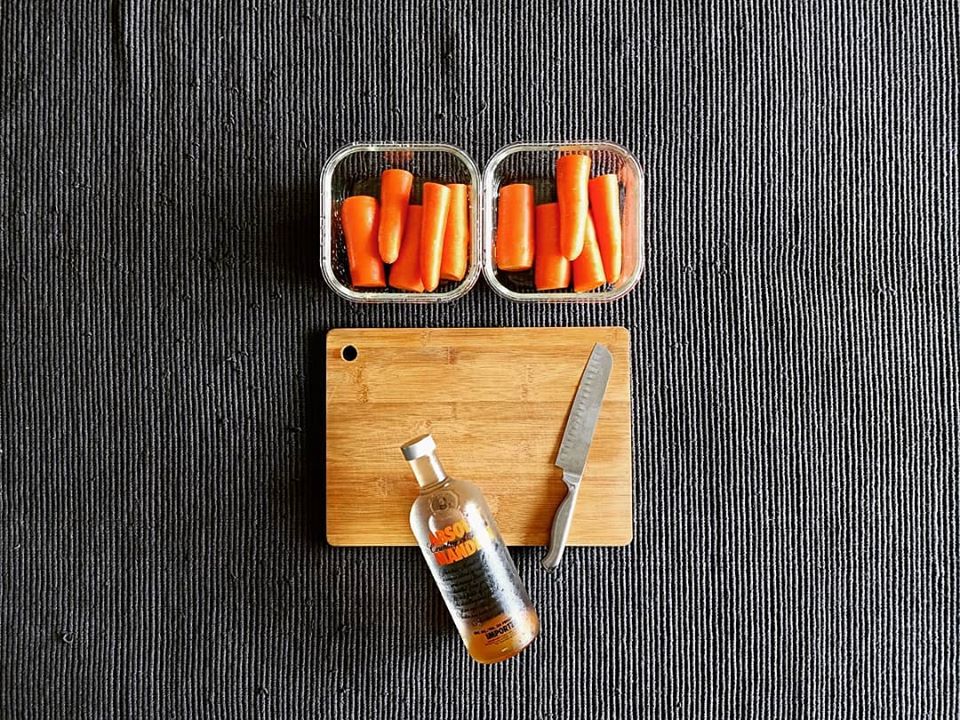
My partner and I only visit the public market to buy package-free produce once every three weeks. Sometimes, we go over a month without buying supplies. Naturally, a lot of people ask us how we store our produce, so we'll be posting articles on how we prepare and keep vegetables in our home. In this post, we'll be talking about carrots.
How we keep carrots fresh and crunchy for a very long time in the fridge:
-
Clean the carrots
We soak, scrub, and wash the carrots down with a water and baking soda solution to remove any pesticide residue.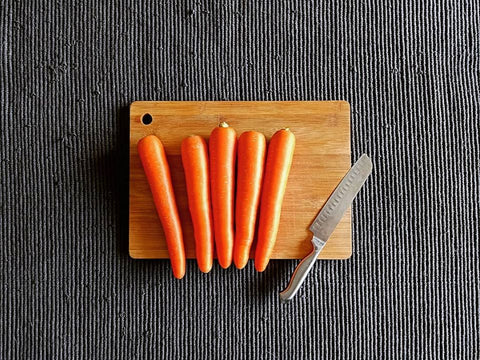
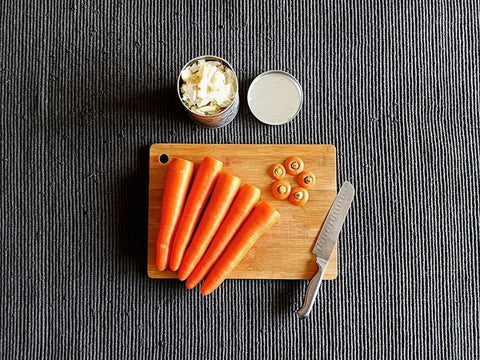
-
Remove the tops
We cut the tops off and stick them in our "veggie stock" can (along with garlic peel, onion peel, celery leaves, and all sorts of clean kitchen scraps for making vegetable broth). This can/container is stored in the freezer.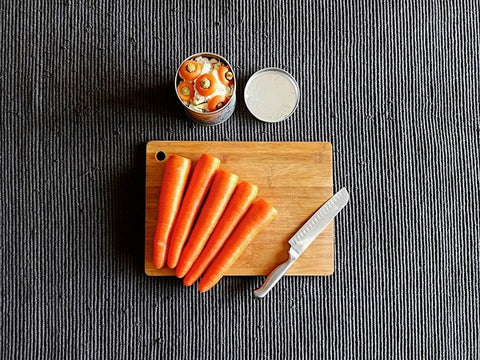
-
Chop the carrots
We halve the carrots. Sometimes we chop them up into little sticks, sometimes we slice them into circles, but most times we just cut them in half. That way, if a future recipe ever calls for carrot sticks, cubes, whatever— we'll be able to cut them however we want.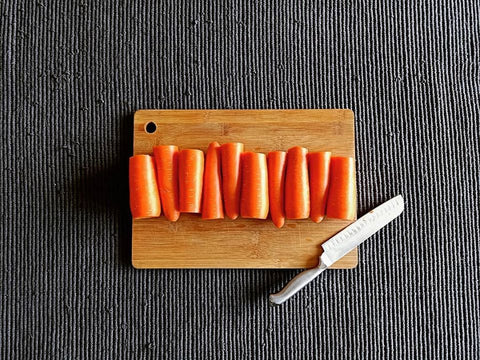
-
Find a suitable container for the carrots
We put the halves/slices/chunks in an airtight container. (Actually, any covered container should do.)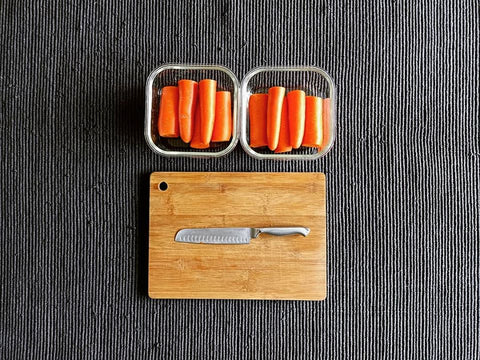
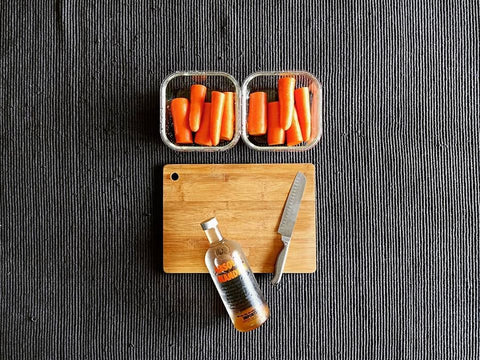
-
Soak the carrots
We fill the airtight container with cold, filtered water, and submerge the carrots completely. Every little inch of each carrot should be covered in water. (Don't mind the bottle in the photograph. We have been reusing vodka bottles for water for the past ten years.)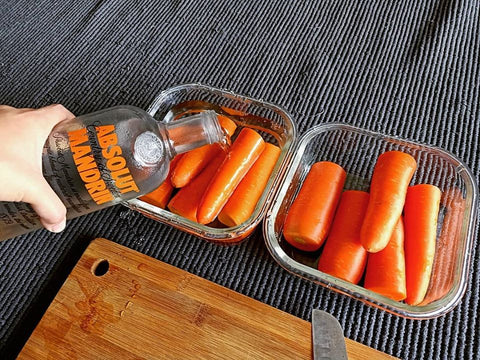
-
Store the carrots
We store the containers in the fridge. They keep forever! Kidding. Not sure how long they really, really keep, because we always eat them before they go bad, but they keep for quite a whileee. Like, weeks. A month, even. We add them into soups, stews, curries, salads, whatever. Sometimes we just cut them up into sticks and snack on them raw. They're also what we serve guests when we get visitors and don't have anything on hand. They're great with hummus, moutabal, pesto, salsa, etc.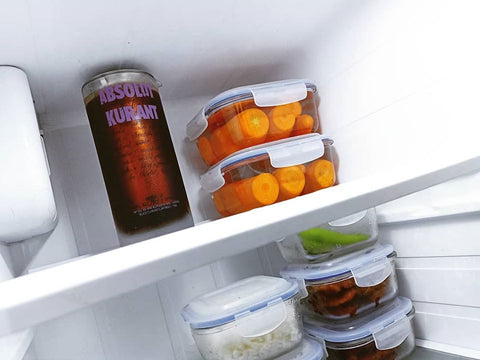
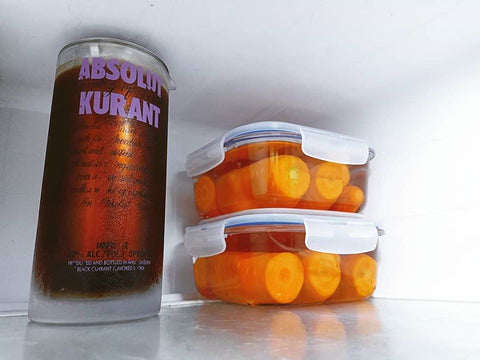
-
Maintain freshness
We change the water out once every few days. (If you can change the water out every day, better.) We never throw the water out. We use the "discard" water for cooking, too. Sometimes we use it as the base for our vegetable stock. Sometimes, we cook rice with it. Other times, we use it to water our plants. This way, nothing goes to waste.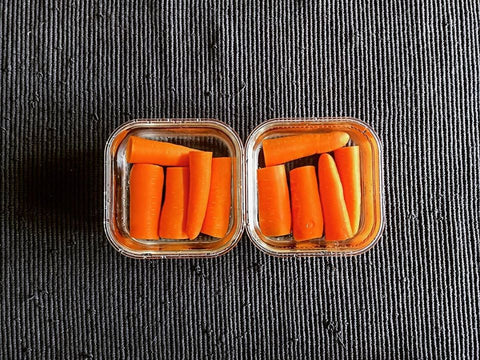
Of course, there are many ways to store carrots and keep them from going bad. One can always pickle them, or make kimchi, or even just freeze them solid. We like to do the method we detailed above, because it's simple, and keeps the carrots crunchy and ready for use.
How do you prep, keep, and cook carrots? Any favourite plant-based recipes?
__________
PS:
As with all of our posts, we are not claiming that this method is the "proper way" to do things, or even the "best way" to do things. This is simply how we do things in our home. We do a lot of research, try and test things extensively, and figure out what works for our household through experience. We hope the content we create helps cut the amount of time and effort our subscribers have to invest in learning how to shrink their own impact on the environment.
We also like to keep our minds open, and enjoy learning new things from the discussions we spur. Please feel free to share your thoughts with us? If you like this article, or think others might benefit from it, please consider sharing it and/or subscribing to our social media profiles.
#carrots #foodprep #foodpreservation #nofoodwaste #foodwaste #vegetablestock #stock #kitchenhacks #kitchenscraps #plantbased #wholefoodsplantbased #wfpb #zerowaste #zerowasteph #zerowasteliving #journeytozerowaste #buhayzerowaste #druid #druidry #druidcraft #druidthings #justdruidthings










